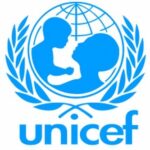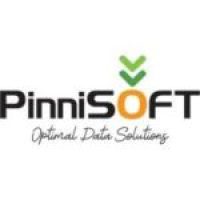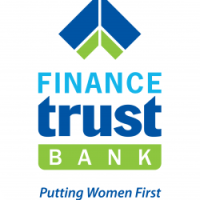UNICEF works in some of the world’s toughest places, to reach the world’s most disadvantaged children. To save their lives. To defend their rights. To help them fulfill their potential.
Across 190 countries and territories, we work for every child, everywhere, every day, to build a better world for everyone.
And we never give up.
For every child, a childhood
UNICEF has been working in Cameroon since 1975 to allow women and children to fully realize their rights to development without restriction, as enshrined in the UN Convention on the Rights of the Child. UNICEF provides financial and technical support to Cameroon across seven areas to fully realize the rights of women and children. These areas include Health, HIV/AIDS, Water-sanitation-Hygiene, nutrition, education, child protection, and social inclusion. UNICEF focuses mainly on children and the most vulnerable and excluded families. Cameroon’s 2020 population is estimated at 26,545,863 people according to UN data. The population is young and generates strong socioeconomic demand. In rural areas, limited access to basic social services and the effects of climate change led to household impoverishment and severe child deprivations. The task is immense but not insurmountable; it requires the energy of all stakeholders in Cameroon and out of Cameroon: also, women, men, youth and children, government, technical and financial partners, donors, civil society, the private sector, parliamentarians, communities. Everyone is invited to take part in the struggle to meet the challenges that lie ahead. It is together that we will act for Cameroon, a country that summarizes the challenges and hopes of Africa.
For more information about UNICEF Cameroon, please click: here.
How can you make a difference?
Under the overall guidance of the Deputy Representative of the Cameroon Country Office, the Chief Field Operations is responsible for the planning, implementation, monitoring, and evaluation of activities relating to emergency preparedness and response; manages the UNICEF Cameroon field operations including the supervision of the Chief of Zonal offices.
Summary of key functions/accountabilities:
- Under the overall guidance of the Deputy Representative, undertake an assessment of conditions resulting from emergency situations affecting children and women in Cameroon, determine priority for interventions, and identify problems and constraints in order to ensure effective response and service delivery; prepare project proposals and contribute to the preparation of the consolidated Inter-Agency Appeal, Humanitarian Workplan, CERF submission and other related documentation as necessary. Participate in the development of strong donor contacts and relations, monitoring and updating emergency program funding priorities and provide support to Representative in fundraising activities;
- As an interface to the Deputy Representative, provide overall leadership, guidance and direction for the development of appropriate operational strategies, day-to-day program implementation, and in consultation with the Chief Social Policy, M&E, continuous monitoring and regular reporting by zonal offices for program implementation and management;
- Support two zonal offices in effective work planning, implementation of activities, office organization, regional operations and logistics; including creating a strong link to UN security functions including DSS and facilitate the use of the UN Security Management System for UNICEF staff; meet with government officials to facilitate operations of the zonal offices. Supervise Chiefs of Field Offices;
- As part of the senior management team, and taking into consideration field realities, ensure the integration of regular and emergency program sectors in all stages of the programming process, i.e., the situation analysis/annual needs assessments, CPD and CPAP, Zonal offices work plans whenever applicable, program strategy, planning monitoring and evaluation, and courses for action for achievement of emergency, early recovery and development programs objectives;
- In coordination with the program cluster and Chiefs of Zonal offices, participate with government and NGO partners in the development of strategies, methodologies and identification of new operational approaches for improving program delivery in emergencies, early recovery and development activities;
- Develop contingency plans together with Program and Operations sections, and facilitate the operationalization of the plan including monitoring its implementation and follow up on agreed actions. Coordinate and support the efforts of the Program section Emergency Focal Persons through regular emergency meetings, to handle specific emergency issues in support of the Government preparedness and response efforts.
- Under the overall guidance of the Deputy Representative, interact with government and other partners, donors, NGOs, UN and bilateral agencies in the different stages of emergency program preparedness and field implementation; follow up on implementation of recommendations and agreements related to field implementation.
- Contribute to the Knowledge Management function of the office by assisting in coordination and inter-sectoral exchange of field information and experience between program sections and zonal offices including the identification of specific advocacy issues and approaches with counterparts, NGOs and donors.
For more details, please open the JD: ![]() Chief Field Operations P4 IMIS# 96666 Yaounde.doc
Chief Field Operations P4 IMIS# 96666 Yaounde.doc
To qualify as an advocate for every child you will have…
- Advanced University Degree in Social Sciences, Public Administration, International Relations, Business Administration, Public Health, Education, or other related technical fields.
- 8 years of progressive experience at national and international levels in field operations management with a strong background in complex humanitarian operations.
- Fluency in French and English.
For every Child, you demonstrate…
UNICEF’s Core Values of Care, Respect, Integrity, Trust and Accountability and Sustainability (CRITAS) underpin everything we do and how we do it. Get acquainted with Our Values Charter: UNICEF Values
UNICEF competencies required for this post are…
(1) Builds and maintains partnerships (2) Demonstrates self-awareness and ethical awareness (3) Drive to achieve results for impact (4) Innovates and embraces change (5) Manages ambiguity and complexity (6) Thinks and acts strategically (7) Works collaboratively with others, and (8) Nurtures, leads and manages people) for supervisory role.
During the recruitment process, we test candidates following the competency framework. Familiarize yourself with our competency framework and its different levels: competency framework here.
UNICEF is here to serve the world’s most disadvantaged children and our global workforce must reflect the diversity of those children. The UNICEF family is committed to include everyone, irrespective of their race/ethnicity, age, disability, gender identity, sexual orientation, religion, nationality, socio-economic background, or any other personal characteristic.
We offer a wide range of benefits to our staff, including paid parental leave, breastfeeding breaks and reasonable accommodation for persons with disabilities. UNICEF strongly encourages the use of flexible working arrangements.
UNICEF has a zero-tolerance policy on conduct that is incompatible with the aims and objectives of the United Nations and UNICEF, including sexual exploitation and abuse, sexual harassment, abuse of authority and discrimination. UNICEF is committed to promote the protection and safeguarding of all children. All selected candidates will, therefore, undergo rigorous reference and background checks, and will be expected to adhere to these standards and principles. Background checks will include the verification of academic credential(s) and employment history. Selected candidates may be required to provide additional information to conduct a background check.
Remarks:
UNICEF’s active commitment towards diversity and inclusion is critical to deliver the best results for children. For this position, eligible and suitable female candidates are encouraged to apply.
Mobility is a condition of international professional employment with UNICEF and an underlying premise of the international civil service.
UNICEF appointments are subject to medical clearance. Issuance of a visa by the host country of the duty station, which will be facilitated by UNICEF, is required for IP positions. Appointments are also subject to inoculation (vaccination) requirements, including against SARS-CoV-2 (Covid). Government employees that are considered for employment with UNICEF are normally required to resign from their government before taking up an assignment with UNICEF. UNICEF reserves the right to withdraw an offer of appointment, without compensation, if a visa or medical clearance is not obtained, or necessary inoculation requirements are not met, within a reasonable period for any reason.
Only shortlisted candidates will be contacted and advance to the next stage of the selection process.









